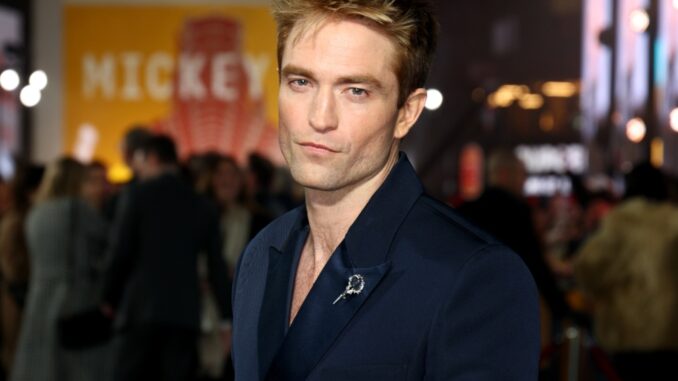
The Soft Glow of Distant Dawn: Robert Pattinson Reflects on Twilight’s Legacy 15 Years Later
Fifteen years. A lifetime for a mayfly, a fleeting whisper in the grand cosmic hum, but for a global phenomenon, it’s a crucial span. Enough time for the fever to break, for the roaring applause to soften into a gentle echo, and for the initial, blinding light of superstardom to settle into a more nuanced, reflective glow. Robert Pattinson, perched perhaps on the edge of a well-worn armchair in a quiet corner of his mind, the muted hum of a distant city replacing the cacophony of a thousand screaming fans, might find himself sifting through the shrapnel of that extraordinary explosion: Twilight.
Back then, he was Edward Cullen, a character so intensely adored and scrutinized that Pattinson himself often felt less like an actor inhabiting a role and more like a reluctant, glittering vessel for an entire generation's romantic fantasies. The phenomenon was less a movie franchise and more a cultural tsunami, sweeping up everything in its path – including the young, intensely private actor. For years, the shadow of the brooding vampire loomed large, a double-edged sword of unimaginable fame and an equally profound sense of artistic imprisonment. His interviews from that era often carried a wry, self-deprecating air, a subtle plea to be seen beyond the pale skin and golden eyes. He spoke of the surreal experience, the near-total loss of anonymity, and the desperate yearning for roles that would strip away the glittering veneer, revealing the raw, imperfect actor beneath.
The legacy, then, began as a burden. Pattinson spent the better part of a decade actively dismantling the pin-up image, meticulously shedding the glittering skin of a vampire, one gritty, independent film at a time. From the manic intensity of Good Time to the stark, existential dread of The Lighthouse, he plunged into roles that were often uncomfortable, challenging, and diametrically opposed to the polished sheen of Forks. He became a darling of arthouse cinema, proving his mettle, year after year, in the dark, smoky corners where serious acting thrived. This was not a rejection of Twilight, not entirely, but a fierce declaration of artistic independence, a journey to carve out a new identity beyond the supernatural romance that had defined his youth.
Now, with a decade and a half separating him from Edward, the perspective shifts. The frenetic energy has dissipated, the initial discomfort mellowed into a quiet understanding. What remains is not just the memory of a phenomenon, but a profound appreciation for its unexpected, enduring impact. He can, perhaps, see Twilight not as the albatross it once felt, but as a bizarre, beautiful, and undeniably foundational stepping stone.
The sheer scale of its success afforded him a freedom many actors only dream of – the ability to choose, to experiment, to fail gracefully and succeed spectacularly, all without the crippling financial pressures that often dictate career paths. He might reflect on the loyalty of the fanbase, still fiercely devoted, still revisiting the saga with a warmth that transcends critical opinion. He might see the indelible mark it left on pop culture, on the YA genre, on the very notion of what a "blockbuster" could be. It was, for all its quirks, a film that spoke directly to a generation, validating their yearning for connection, their awkward burgeoning desires, and their dreams of extraordinary love.
And then there's the beautiful, full-circle irony of it all: Robert Pattinson, the once-reluctant vampire heartthrob, is now The Batman. From one iconic, brooding figure to another, but this time, he’s chosen the cowl, not had it thrust upon him. There’s a gravitas, a quiet confidence that radiates from him now, a sense of having earned his place. He tackled Bruce Wayne with the same thoughtful intensity he brought to his independent films, crafting a hero rooted in vulnerability and existential angst. It's a role that, in a strange way, only Twilight's initial, massive exposure could have made possible, yet one he could only fully embody after the hard-won years of reinvention.
So, 15 years on, Robert Pattinson likely looks back at Twilight with a complex, but ultimately appreciative gaze. Not with the frantic energy of the initial rush, nor the weary detachment of the immediate aftermath, but with the soft, knowing glow of distant dawn. It was a bizarre, formative chapter, a crucible that forged not just a star, but an actor with integrity, resilience, and a singular, fascinating path. The glitter may have faded, but the impact, and the quiet pride in having navigated such an extraordinary journey, remains, a permanent, fascinating facet of his enduring legacy.
